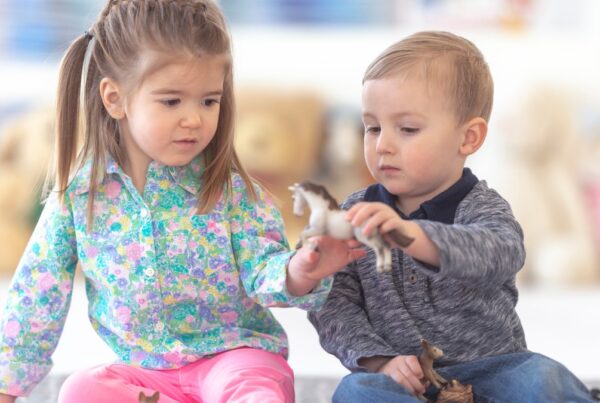Key Points:
- Autistic individuals may struggle with communication, sensory overload, or emotional regulation, which can make them appear distant.
- Understanding the reasons behind their behavior can help improve the relationship and prevent misunderstandings.
- Clear communication, patience, and structured support like ABA therapy can strengthen the connection.
He’s affectionate one day, distant the next. If your autistic boyfriend ignores you, it may not be about you at all. Sensory overload, social exhaustion, or difficulty expressing emotions could be at play. Learning why this happens can help you navigate your relationship with more patience and clarity.
Why Does My Autistic Boyfriend Ignore Me?
Your autistic boyfriend may not be ignoring you intentionally. Many autistic individuals experience social fatigue, sensory overload, or difficulty processing emotions, leading them to withdraw. Understanding these reasons can help you interpret his behavior more accurately and respond with patience and support.
Here are some of the most common explanations:
1. Social Exhaustion and Burnout
Interacting with others, even loved ones, requires significant effort for many autistic individuals. While neurotypical people may feel energized by social interactions, autistic people often find them draining.
- Engaging in conversation requires processing verbal and non-verbal cues simultaneously.
- Masking (hiding autistic traits to fit in) can be exhausting, leading to burnout.
- Extended social engagement can result in the need for solitude to recharge.
If your boyfriend withdraws after socializing or after a long day, he may need time alone to recover. It’s not about ignoring you—it’s about self-regulation.
2. Sensory Overload
Autistic individuals often experience heightened sensitivity to noise, light, touch, or even strong emotions. What seems like a minor distraction to you might be overwhelming for him.
Common triggers include:
- Crowded environments – Too much background noise can make conversations difficult.
- Strong emotions – Your excitement or frustration might feel intense, making him shut down.
- Physical contact – Some autistic individuals struggle with touch, even in romantic relationships.
If he withdraws, consider whether the environment might be overstimulating for him. Offering a quiet space or allowing time to decompress can help.
3. Difficulty Processing Emotions
Autism affects how people understand and express emotions. Your boyfriend may not ignore you intentionally, but might need more time to process his thoughts and feelings before responding.
- He may not recognize your emotional cues right away.
- He might struggle to express his own emotions verbally.
- Emotional conversations could feel overwhelming, causing him to retreat instead of engaging.
Instead of assuming avoidance, try giving him space to process emotions in his own time. Direct, clear communication can also help.
4. Hyperfocus on Special Interests
Many autistic individuals have deep passions for specific subjects or activities. When they are hyperfocused, they may become so absorbed that they tune out everything else, including messages or conversations.
Signs of hyperfocus include:
- Ignoring notifications, texts, or calls while engaged in an activity.
- Becoming deeply immersed in hobbies or work, losing track of time.
- Forgetting to respond, even if they intended to.
If this happens, it’s likely not personal. Setting gentle reminders or discussing communication expectations can help balance personal interests with relationship needs.
5. Struggles with Unspoken Social Rules
Neurotypical relationships rely heavily on unspoken expectations—like responding to texts within a certain timeframe or knowing when someone needs emotional support. These social nuances may not be obvious to an autistic individual.
Common misunderstandings include:
- Not realizing that delayed responses can seem hurtful.
- Missing subtle cues that indicate a need for attention.
- Assuming silence is acceptable because they personally enjoy it.
Clear, direct communication about your expectations can help. Instead of assuming he knows how you feel, express it explicitly.
6. Communication Differences in Texting & Calls
Texting and phone conversations can be particularly challenging for autistic individuals. If your boyfriend doesn’t respond immediately, consider these possibilities:
- He may not see constant texting as necessary and prefer structured conversations.
- Processing responses takes time, especially when navigating emotions or complex topics.
- Unexpected phone calls can feel intrusive, making texts or scheduled calls a better option.
Instead of assuming he is ignoring you, ask about his preferred communication style and find a compromise that works for both of you.
7. Relationship Stress or Anxiety
If your boyfriend is overwhelmed by relationship challenges, his instinct might be to withdraw rather than confront them. Conflict can be especially stressful for autistic individuals who struggle with emotional regulation.
Common stressors include:
- Fear of saying the wrong thing and making the situation worse.
- Anxiety about not meeting expectations.
- Difficulty expressing their own needs or frustrations.
If he becomes distant during stressful moments, giving him time to process before addressing concerns can be helpful. For more strategies on supporting social development, check out our article “Social Skills Checklist for Autism: Tips & Strategies” for practical advice on fostering communication and connection.
How to Improve Communication with Your Autistic Boyfriend
Understanding why your autistic boyfriend ignores you (or seems to) is just the first step. Here’s how you can foster better communication and connection:
Communicate Clearly and Directly
Autistic individuals often struggle with indirect communication or emotional hints. Instead of expecting him to “read between the lines,” try:
- Expressing your needs explicitly (“I’d love to spend time together tonight.”).
- Asking clear questions instead of implying expectations.
- Using written communication for complex topics to allow processing time.
Respect His Need for Space
If he withdraws, it may be a coping mechanism rather than avoidance. Support his need for alone time while also maintaining healthy relationship boundaries.
- Set expectations for communication frequency.
- Recognize when he needs downtime.
- Find a balance that works for both of you.
Adapt to His Communication Preferences
Instead of trying to fit him into a neurotypical communication style, try adapting your approach:
- Discuss preferred methods of communication (texts, calls, in-person).
- Use structured conversation times if spontaneity is overwhelming.
- Be patient when waiting for responses.
Educate Yourself on Autism and Relationships
Understanding how autism impacts relationships can prevent unnecessary frustration. Some ways to learn more:
- Reading books and articles about autistic relationships.
- Joining support groups or online forums.
- Seeking professional guidance if needed.
Strengthening Relationships with ABA Therapy
Navigating a relationship with an autistic partner requires patience, understanding, and adaptability. If communication struggles are causing stress, structured support like Applied Behavior Analysis (ABA) therapy can help.
At Crown ABA, we specialize in helping autistic individuals build social, emotional, and communication skills to strengthen their relationships. Our tailored ABA therapy programs in Maryland provide practical strategies to improve understanding, emotional regulation, and connection.
If you or your partner are in Maryland and seeking support, contact us today to learn how ABA therapy can enhance communication and relationship success.





